
One of the joys of research is uncovering the unexpected. Most recently this happened to me when I was writing Charles Dickens and the Street Children of London. Dickens was a patron of the London Foundling Hospital, a charitable home for orphans founded in 1741. (Foundlings were children whose parents were unknown, and hospital meant shelter back then.)
Researching the Foundling, I learned that a century before Dickens, German composer George Frederic Handel was one of its greatest benefactors. I thought this must be a mistake since he was German. Curious, I took a side journey into Handel’s life to find out. Brimming with musical talent, Handel moved to London at age 26 to find work and quickly became a popular composer and performer. He decided to stay, eventually becoming a British citizen. Londoners readily recognized him, for he was a great bear of a man who wore stylish clothes and an enormous wig. He spoke with a thick German accent, and when angry, his words tumbled together in German, Italian, and English. He never married or had children, but he had a big heart and readily assisted the needy and destitute, especially children. It’s been said that no other composer contributed so much to the relief of human suffering. He often helped charities by donating all proceeds from a concert. In 1749 when he learned that the Foundling did not have funds for its proposed chapel, he offered a concert to introduce his newest composition, Messiah. The packed audience was enthralled. A second concert quickly sold out, and the chapel was completed. Handel became a member of the Foundling’s Board of Governors and continued his financial assistance by personally directing Messiah in the chapel at least once a year, always to overflow crowds. When the king attended a performance, he stood for the “Hallelujah Chorus”--and audiences have been standing ever since. Because Handel knew people would pay to see it, he willed the Foundling an original copy of Messiah. I listen to Handel’s compositions differently now. It’s no longer mere music from the past; instead, it feels alive, created by a fascinating man with a charitable heart who helped provide for orphans. I attend Messiah whenever I can, and when we all stand for the “Hallelujah Chorus,” I smile to myself, feeling a strong connection to history, for I know exactly why we are doing it. 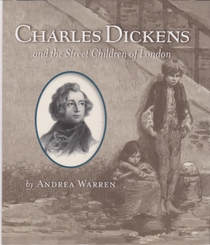
As much as Andrea Warren loves writing, she also loves research. Getting distracted can pay off, because she's now writing a book on a subject she discovered while researching another book. To learn more about Handel and how he not only helped the poor but also inspired Charles Dickens, take a look at Warren's book "Charles Dickens and the Street Children of London." You'll learn more about it and about her other books at www.AndreaWarren.com . Andrea is also a member of Authors on Call. Bring her into your classroom via interactive video conferencing. Here’s where you can learn more about her and her programs.
0 Comments
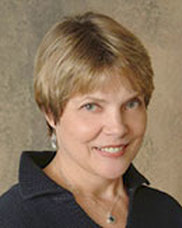 If you yearn and burn to be a writer, how can you make that a reality? From the time I was a teenager, I wanted writing to be my life’s work. But even though I loved to write, how to become a writer stumped me. I thought education must be the answer and had master’s degrees in both English and journalism before I realized that the only one who could harness and develop my inner writer—my writing soul—was me. Like most writers before me, I had to mostly teach myself what I needed to know. I have since published hundreds of articles and a dozen books. While writing a book about Charles Dickens, I was surprised to learn that even he—one of the greatest writers of all—also had to teach himself. Because of family circumstances, he had only two years of formal schooling, so he learned the fine points of grammar and style on his own. Beginning at age fifteen, he worked upward through a series of jobs until, based solely on his writing ability, he became a newspaper reporter. In his spare time he wrote stories, articles, sketches, essays, editorials, theatre reviews, and plays. Gradually he began getting published in a monthly magazine. It didn’t pay him, but he was honing his craft, finding and training his voice as a writer. Then a publisher who liked his magazine stories gave him the opportunity to write his first novel—and the rest is history. My advice to you is Dickens’ advice to you: don’t wait for someone to give you permission to be a writer or to teach you how. Give yourself permission. Teach yourself. Just write. Do it every day. Write about what you see, what you feel, what you dream. Make up stories. Observe people closely: what they wear, how they speak, what they do, how they feel and why. Learn how to write articles and essays. Study your favorite authors and pattern your work after theirs. Don’t worry that you are mimicking them, for you will find your own style. Trust me on this. Draw from the wisdom and skill of writers who have gone before you, because everything you need to know, you can learn from them. When you’re ready, publication will follow. Read, read, read. Write, write, write. If you want to become a writer, start now. Be a writer. Charles Dickens at age 37 (c) Andrea Warren 2014 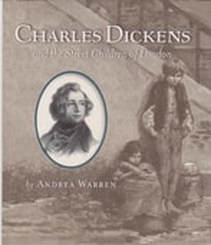 Andrea Warren often teaches writing classes, and she often talks about Charles Dickens and how writing ultimately comes down to teaching yourself. Warren talks more about the writing process on her website, And to learn more about Charles Dickens and his quest to become a writer, check out her book, "Charles Dickens and the Street Children of London." Andrea Warren is also a member of Authors on Call. Bring her into your classroom via interactive video conferencing. Here’s where you can learn more about her and her programs. MLA 8 Citation Warren, Andrea. "How Do You Become a Writer? Ask Charles Dickens." Nonfiction Minute, iNK Think Tank, 21 Sept. 2017, www.nonfictionminute.org/the-nonfiction-minute/how-do-you-become-a-writer-ask-charles-dickens. 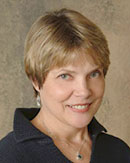 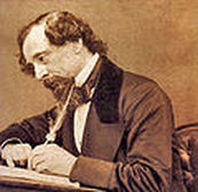 In 1843, thirty-one-year-old Charles Dickens had money problems. His wife was expecting their sixth child, he was in debt, and he supported a slew of needy relatives. He was known for long novels that were published in weekly installments, but because time was of the essence, he decided to write a short story (actually a long story by our standards, but short by his) that he could publish quickly. The British were enamored with the paranormal, so he decided it would be a ghost story. To increase interest, he included THREE ghosts. And to seal the deal, he added a bonus apparition that appeared at the stroke of midnight, dragging its chains from hell. That would get readers’ attention. He didn’t intend to simply entertain them. He was Charles Dickens, after all, and his writing was also meant to inspire. His family had once been poor, and his quest, as always, was to help the less fortunate. The tale he crafted happened at Christmas, a holiday that in England included charitable giving—the perfect setting for his message that charity must come from the heart, and that it’s never too late for redemption. From his fertile imagination he conjured up Ebenezer Scrooge, “a squeezing, wrenching, grasping, clutching, covetous, old sinner!” whose refrain to anything distasteful was “Bah, Humbug!” Scrooge represented the self-serving upper classes, while his poorly paid clerk, Bob Cratchit, and his family, including sickly Tiny Tim, represent the deserving poor. Dickens sent Scrooge on a wild night’s journey, led by the ghosts of Christmases past, present, and future. Scrooge visited his childhood and learned why he’d become such a miserable miser, and he saw a grim future awaiting him if he didn’t change his ways. By sunrise Christmas morning he was a new man: his hard heart had melted and he became a good friend to the poor, beginning with the Cratchit family. He resolved to “honor Christmas in my heart, and try to keep it all the year.” To Dickens’ delight, his readers did the same. In example after example, A Christmas Carol inspired the upper classes to be more charitable to the lower classes. And because the book became a bestseller, it eased Dickens’ financial worries. Dickens’ ghost story remains popular today, reminding us all that it’s never too late to do the right thing, and allowing us to proclaim with Tiny Tim, “God Bless Us, Every One!” 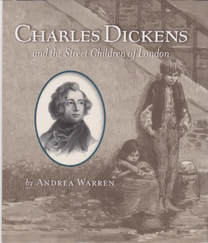 You can learn more about Charles Dickens and his stories in Andrea Warren’s book Charles Dickens and the Street Children of London and on her website. Andrea Warren is a member of iNK's Authors on Call and is available for classroom programs through Field Trip Zoom, a terrific technology that requires only a computer, wifi, and a webcam. Click here to find out more. MLA 8 Citation
Warren, Andrea. "Dickens' A Christmas Carol: How a Short Story with a Big Message Helped the Poor." Nonfiction Minute, iNK Think Tank, 12 Dec. 2017, www.nonfictionminute.org/Dickens-a-christmas-carol. |
*NEWS
|
For Vicki Cobb's BLOG (nonfiction book reviews, info on education, more), click here: Vicki's Blog
The NCSS-CBC Notable Social Studies Committee is pleased to inform you
that 30 People Who Changed the World has been selected for Notable Social Studies Trade Books for Young People 2018, a cooperative project of the National Council for the Social Studies (NCSS) & the Children’s Book Council
Categories
All
Abolitionists
Adams Janus
Adaptation
Adaptations
Adkins Jan
Advertising
Aerodynamics
Africa
African American History
African Americans
Africa West
Agriculture
Aircraft
Air Pilots
Air Pressure
Air Travel
Albee Sarah
Alchemy
Alligators
Allusion
American History
American Icons
Amphibians
Amundsen Roald
Anatomy
Ancient
Ancient Cultures
Anderson Marian 1897-1993
Animal Behavior
Animal Experimentation
Animal Intelligence
Animals
Animation
Antarctica
Ants
Apache Indians
Apes
April Fool's Day
Architecture
Argument
Arithmetic
Art
Art Deco
Artists
Arts
Asia
Astronauts
Astronomy
Athletes
Atomic Theory
Audubon Societies
Authors
Autobiography
Automobiles
Aviation
Awards
Bacteria
Baseball
Battuta Ibn
Bears
Beatles
Beavers
Bees
Biodegradation
Biography
Biology
Biomes
Biomimicry
Biplanes
Birds
Black Death
Black History
Blindness
Blizzards
Bombs
Bonaparte Napoleon
Boone Daniel
Botany
Brazil
Bridges
Brill Marlene Targ
Brooklyn Bridge
Brown John
Buffaloes
Building Materials
Butterflies
Caesar
Caesar Julius
Caissons
Calculus
Calendars
Cannibal
Capitals
Caravaggio
Carbon Dioxide
Carnivores
Carson Mary Kay
Cartoons & Comics
Carving (Decorative Arts)
Cascade Range
Castaldo Nancy
Castles
Castrovilla Selene
Cathedrals
Cats
Caves
Celts
Cemeteries
Chemistry
Children's Authors
Child Welfare
China
Choctaw Indians
Christmas
Chronometers
Cicadas
Cinco De Mayo
Ciphers
Circle
Citizenship
Civil Rights
Civil Rights Movements
Civil War
Civil War - US
Climate
Climate Change
Clocks And Watches
Clouds
Cobb Vicki
COBOL (Computer Language)
Code And Cipher Stories
Collard III Sneed B.
Collectors And Collecting
Color
Commerce
Communication
Competition
Compilers
Composers
Computers
Congressional Gold Medal
Consitution
Contests
Contraltos
Coolidge Calvin
Cooling
Corms
Corn
Counterfeiters
Covid-19
Crocodiles
Cryptography
Culture
Darwin Charles
Declaration Of Independence
Decomposition
Decompression Sickness
Deep-sea Animals
Deer
De Medici Catherine
Design
Detectives
Dickens Charles
Disasters
Discrimination
Diseases
Disney Walt
DNA
Dogs
Dollar
Dolphins
Douglass Frederick 1818-1895
Droughts
Dr. Suess
Dunphy Madeleine
Ear
Earth
Earthquakes
Ecology
Economics
Ecosystem
Edison Thomas A
Education
Egypt
Eiffel-gustave-18321923
Eiffel-tower
Einstein-albert
Elephants
Elk
Emancipationproclamation
Endangered Species
Endangered-species
Energy
Engineering
England
Englishlanguage-arts
Entomology
Environmental-protection
Environmental-science
Equinox
Erie-canal
Etymology
Europe
European-history
Evolution
Experiments
Explorers
Explosions
Exports
Extinction
Extinction-biology
Eye
Fairs
Fawkes-guy
Federalgovernment
Film
Fires
Fishes
Flight
Floods
Flowers
Flute
Food
Food-chains
Foodpreservation
Foodsupply
Food-supply
Football
Forceandenergy
Force-and-energy
Forensicscienceandmedicine
Forensic Science And Medicine
Fossils
Foundlings
France
Francoprussian-war
Freedom
Freedomofspeech
French-revolution
Friction
Frogs
Frontier
Frontier-and-pioneer-life
Frozenfoods
Fugitiveslaves
Fultonrobert
Galapagos-islands
Galleys
Gametheory
Gaudi-antoni-18521926
Gender
Generals
Genes
Genetics
Geography
Geology
Geometry
Geysers
Ghosts
Giraffe
Glaciers
Glaucoma
Gliders-aeronautics
Global-warming
Gods-goddesses
Gold-mines-and-mining
Government
Grant-ulysses-s
Grasshoppers
Gravity
Great-britain
Great-depression
Greece
Greek-letters
Greenberg Jan
Hair
Halloween
Handel-george-frederic
Harness Cheryl
Harrison-john-16931776
Health-wellness
Hearing
Hearing-aids
Hearst-william-randolph
Henry-iv-king-of-england
Herbivores
Hip Hop
History
History-19th-century
History-france
History-world
Hitler-adolph
Hoaxes
Holidays
Hollihan Kerrie Logan
Homestead-law
Hopper-grace
Horses
Hot Air Balloons
Hot-air-balloons
Housing
Huguenots
Human Body
Hurricanes
Ice
Icebergs
Illustration
Imagery
Imhotep
Imperialism
Indian-code-talkers
Indonesia
Industrialization
Industrial-revolution
Inquisition
Insects
Insulation
Intelligence
Interstatecommerce
Interviewing
Inventions
Inventors
Irrational-numbers
Irrigation
Islands
Jacksonandrew
Jazz
Jeffersonthomas
Jefferson-thomas
Jemisonmae
Jenkins-steve
Jet-stream
Johnsonlyndonb
Jokes
Journalism
Keeling-charles-d
Kennedyjohnf
Kenya
Kidnapping
Kingmartinlutherjr19291968
Kingmartinlutherjr19291968d6528702d6
Kings-and-rulers
Kings Queens
Kings-queens
Koala
Labor
Labor Policy
Lafayette Marie Joseph Paul Yves Roch Gilbert Du Motier Marquis De 17571834
Landscapes
Languages-and-culture
Law-enforcement
Layfayette
Levers
Levinson Cynthia
Lewis And Clark Expedition (1804-1806)
Lewis Edmonia
Liberty
Lift (Aerodynamics)
Light
Lindbergh Charles
Liszt Franz
Literary Devices
Literature
Lizards
Longitude
Louis XIV King Of France
Lumber
Lunar Calendar
Lynching
Macaws
Madison-dolley
Madison-james
Madison-james
Mammals
Maneta-norman
Maneta-norman
Marathon-greece
Marine-biology
Marine-biology
Marines
Marsupials
Martial-arts
Marx-trish
Mass
Massachusetts-maritime-academy
Mass-media
Mastodons
Mathematics
May-day
Mcclafferty-carla-killough
Mcclafferty-carla-killough
Mckinley-william
Measurement
Mechanics
Media-literacy
Media-literacy
Medicine
Memoir
Memorial-day
Metaphor
Meteorology
Mexico
Mickey-mouse
Microscopy
Middle-west
Migration
Military
Miners
Mississippi
Molasses
Monarchy
Monsters
Montgomery
Montgomery-bus-boycott-19551956
Montgomery-heather-l
Monuments
Moon
Moran-thomas
Morsecode
Morsesamuel
Moss-marissa
Moss-marissa
Motion
Motion-pictures
Mummies
Munro-roxie
Munro-roxie
Musclestrength
Museums
Music
Muslims
Mythologygreek
Nanofibers
Nanotechnology
Nathan-amy
Nathan-amy
Nationalfootballleague
Nationalparksandreserves
Nativeamericans
Native-americans
Native-americans
Naturalhistory
Naturalists
Nature
Nauticalcharts
Nauticalinstruments
Navajoindians
Navigation
Navy
Ncaafootball
Nervoussystem
Newdeal19331939
Newman-aline
Newman-aline
Newton-isaac
New-york-city
Nobelprizewinners
Nomads
Nonfictionnarrative
Nutrition
Nylon
Nymphs-insects
Oaths Of Office
Occupations
Ocean
Ocean-liners
Olympics
Omnivores
Optics
Origami
Origin
Orphans
Ottomanempire
Painters
Painting
Paleontology
Pandemic
Paper-airplanes
Parksrosa19132005
Parrots
Passiveresistance
Patent Dorothy Hinshaw
Peerreview
Penguins
Persistence
Personalnarrative
Personification
Pets
Photography
Physics
Pi
Pigeons
Pilots
Pinkertonallan
Pirates
Plague
Plains
Plainsindians
Planets
Plantbreeding
Plants
Plastics
Poaching
Poetry
Poisons
Poland
Police
Political-parties
Pollen
Pollution
Polo-marco
Populism
Portraits
Predation
Predators
Presidentialmedaloffreedom
Presidents
Prey
Prey-predators
Prey-predators
Prime-meridian
Pringle Laurence
Prohibition
Proteins
Protestandsocialmovements
Protestants
Protestsongs
Punishment
Pyramids
Questioning
Radio
Railroad
Rainforests
Rappaport-doreen
Ratio
Reading
Realism
Recipes
Recycling
Refrigerators
Reich-susanna
Religion
Renaissance
Reproduction
Reptiles
Reservoirs
Rheumatoidarthritis
Rhythm-and-blues-music
Rice
Rivers
Roaringtwenties
Roosevelteleanor
Rooseveltfranklind
Roosevelt-franklin-d
Roosevelt-theodore
Running
Russia
Safety
Sanitation
Schwartz David M
Science
Scientificmethod
Scientists
Scottrobert
Sculpture
Sculpturegardens
Sea-level
Seals
Seals-animals
Secretariesofstate
Secretservice
Seeds
Segregation
Segregationineducation
Sensessensation
September11terroristattacks2001
Seuss
Sextant
Shackletonernest
Shawneeindians
Ships
Shortstories
Silkworms
Simple-machines
Singers
Siy Alexandra
Slavery
Smuggling
Snakes
Socialchange
Social-change
Socialjustice
Social-justice
Socialstudies
Social-studies
Social-studies
Sodhouses
Solarsystem
Sound
Southeast-asia
Soybean
Space Travelers
Spain
Speech
Speed
Spiders
Spies
Spiritualssongs
Sports
Sports-history
Sports-science
Spring
Squirrels
Statue-of-liberty
STEM
Storms
Strategy
Sugar
Sumatra
Summer
Superbowl
Surgery
Survival
Swanson-jennifer
Swinburne Stephen R.
Synthetic-drugs
Taiwan
Tardigrada
Tasmania
Tasmanian Devil
Tasmanian-devil
Technology
Tecumsehshawneechief
Telegraph-wireless
Temperature
Tennis
Terrorism
Thomas Peggy
Thompson Laurie Ann
Time
Titanic
Tombs
Tortoises
Towle Sarah
Transcontinental-flights
Transportation
Travel
Trees
Trung Sisters Rebellion
Tundra
Turnips
Turtles
Typhoons
Underground Railroad
Us-environmental-protection-agency
Us History
Us-history
Ushistoryrevolution
Us History Revolution
Us-history-war-of-1812
Us Presidents
Ussupremecourtlandmarkcases
Vacations
Vaccines
Vangoghvincent
Vegetables
Venom
Vietnam
Viruses
Visual-literacy
Volcanoes
Voting-rghts
War
Warne-kate
Warren Andrea
Washington-dc
Washington George
Water
Water-currents
Wax-figures
Weapons
Weather
Weatherford Carole Boston
Whiting Jim
Wildfires
Winds
Windsor-castle
Wolves
Woman In History
Women
Women Airforce Service Pilots
Women-airforce-service-pilots
Womeninhistory
Women In History
Women-in-science
Women's History
Womens-roles-through-history
Wonder
Woodson-carter-godwin-18751950
World-war-i
World War Ii
World-war-ii
Wright Brothers
Writing
Writing-skills
Wwi
Xrays
Yellowstone-national-park
Zaunders Bo
ArchivesMarch 2021
February 2021
January 2021
December 2020
November 2020
October 2020
September 2020
June 2020
May 2020
April 2020
March 2020
February 2020
January 2020
December 2019
October 2019
September 2019
August 2019
July 2019
May 2019
April 2019
March 2019
February 2019
January 2019
December 2018
November 2018
September 2018
June 2018
May 2018
April 2018
March 2018
February 2018
January 2018
December 2017
November 2017
October 2017
September 2017
March 2017
The NONFICTION MINUTE, Authors on Call, and. the iNK Books & Media Store are divisions of iNK THINK TANK INC.
a 501 (c) (3) nonprofit corporation. To return to the iNK Think Tank landing page click the icon or the link below. :
http://inkthinktank.org/
For more information or support, contact thoughts@inkthinktank.org
For Privacy Policy, go to
Privacy Policy
© COPYRIGHT the Nonfiction Minute 2020.
ALL RIGHTS RESERVED.
This site uses cookies to personalize your experience, analyze site usage, and offer tailored promotions. www.youronlinechoices.eu
Remind me later
Archives
March 2023
February 2023
January 2023
December 2022
November 2022
October 2022
September 2022
June 2022
May 2022
April 2022
March 2022
February 2022
January 2022
December 2021
November 2021
September 2021
April 2021
March 2021
February 2021
November 2020
October 2020
September 2020
June 2020
May 2020
April 2020
March 2020
February 2020
January 2020
October 2019
August 2019
July 2019
May 2019
April 2019
December 2018
September 2018
June 2018
May 2018
March 2018
February 2018
January 2018
December 2017
November 2017
October 2017
September 2017


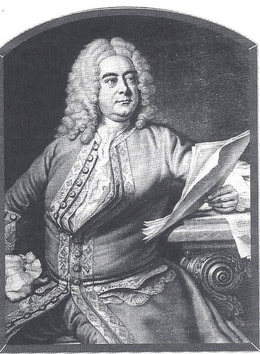

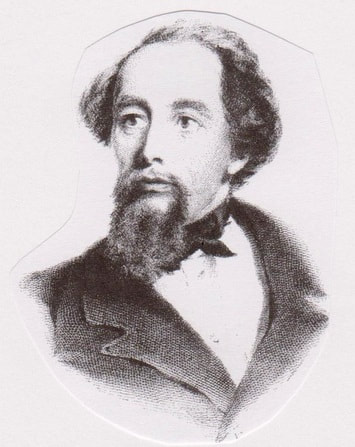


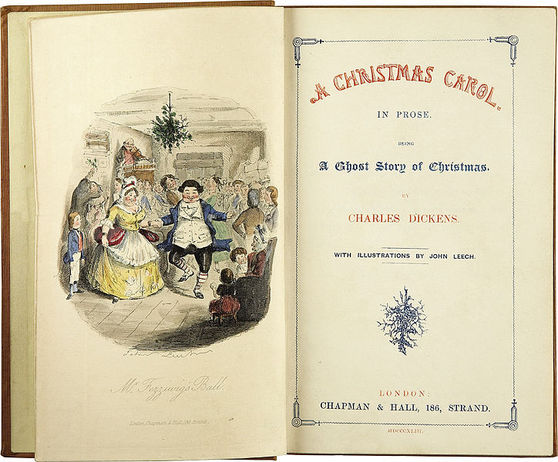
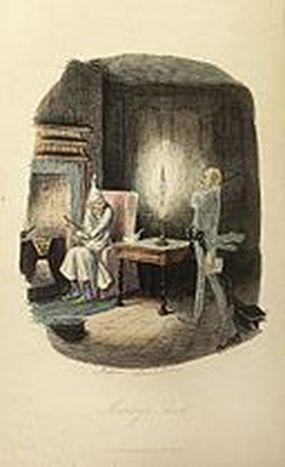
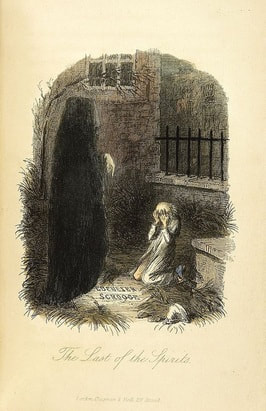
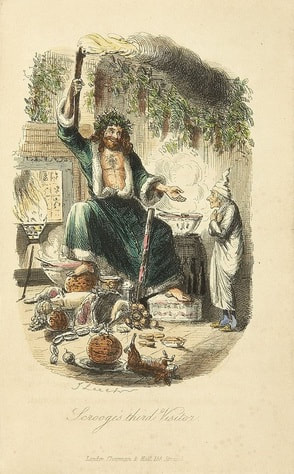
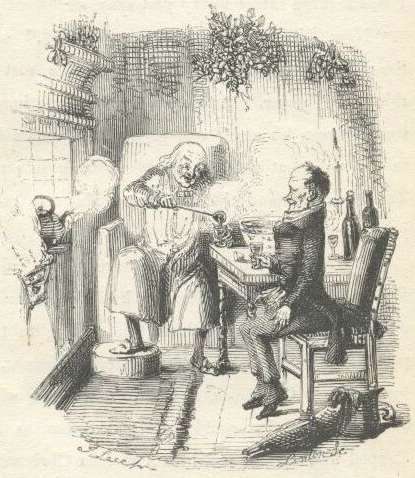
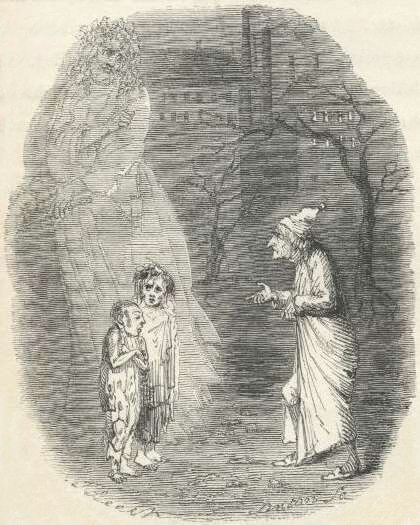

 RSS Feed
RSS Feed
